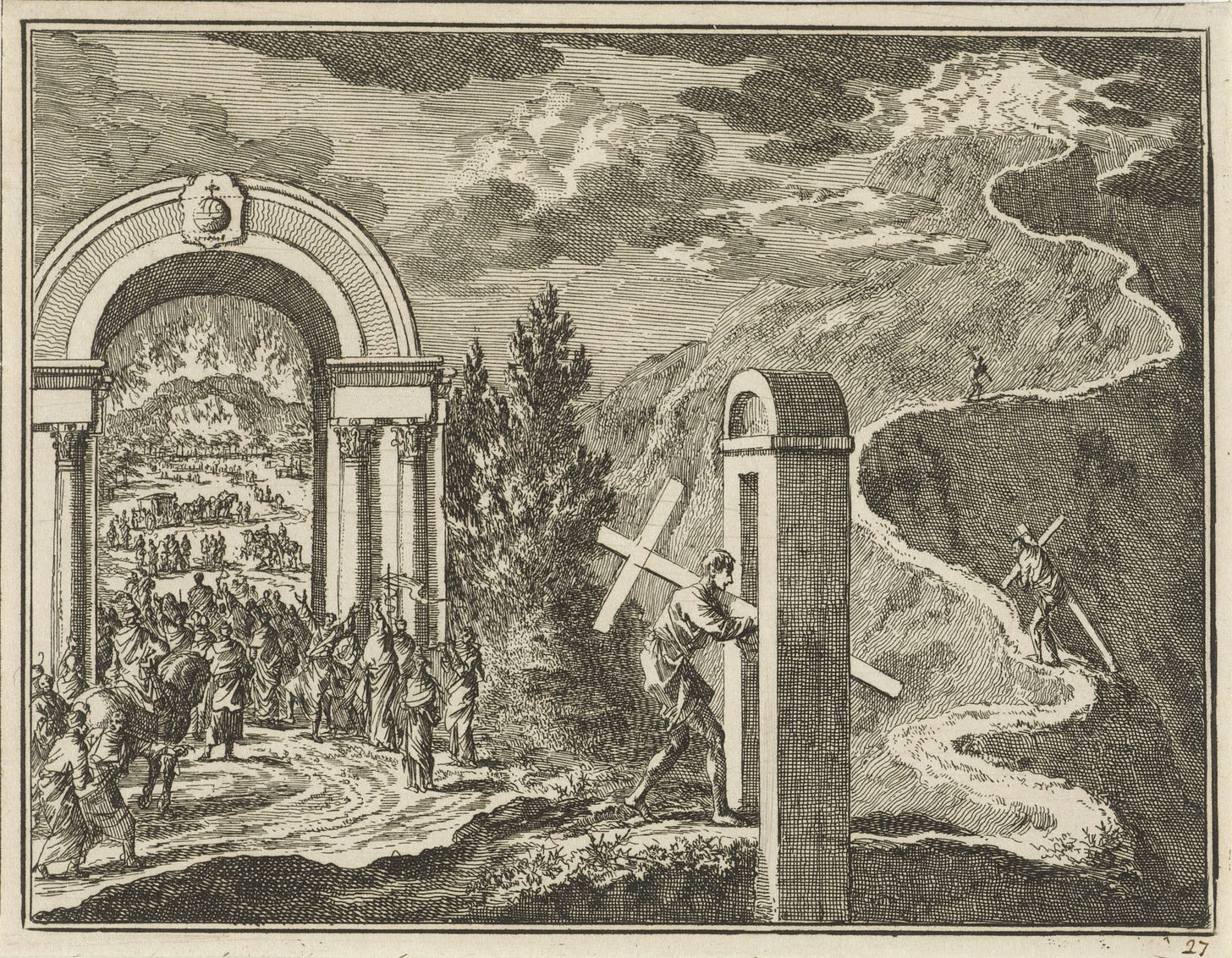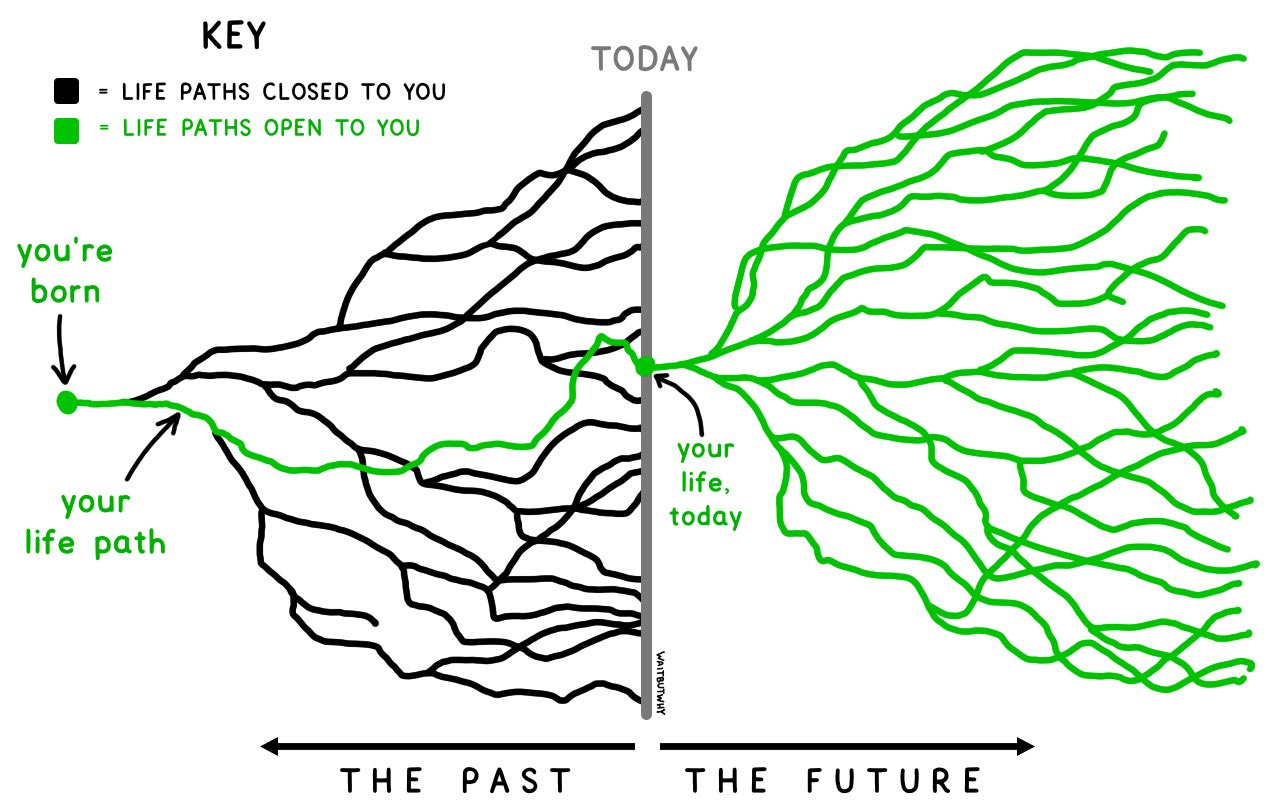The narrow gate & the road less traveled
When are you confronted with the choice between the wide, easy path and the narrow, difficult one?

Enter by the narrow gate. For the gate is wide and the way is easy that leads to destruction, and those who enter by it are many. For the gate is narrow and the way is hard that leads to life, and those who find it are few.
~Matthew 7:13–14
We are born into a world we can’t fully understand. We understand it only incrementally better with each passing year. So it’s very hard to be confronted with major life decisions. Which of these decisions in your life were fully informed? When have you ever had perfect information before choosing a particular path in life?
Kierkegaard says that we have to live life forward, but we can only understand it looking backward.
Out of the nearly infinite paths your live might have taken, only one has led you to where you are today—and sometimes, you might look back with regret on some of the choices you’ve made.
But at the same time, at every moment of your life, an equally infinite number of paths branches out again—no matter where you’re at in life, how old you are or whatever challenges you face.
Tim Urban’s depiction of this reality is compelling:
This brings us to Jesus’s teaching:
Enter by the narrow gate. For the gate is wide and the way is easy that leads to destruction, and those who enter by it are many. For the gate is narrow and the way is hard that leads to life, and those who find it are few.
I think each of us has a different wide gate: we all have ways in which we are tempted to take things easy, to destroy our lives by not fulfilling them.
Jesus’s words are often given an eternal gloss: “Make good choices now, even if it’s hard to do so, so you don’t wind up in hell.”
It’s a fundamental assumption of this newsletter that there’s no real difference between the imminent and eternal readings of passage like these.
The good is the good. It’s always good to do good. Anytime we bring goodness, kindness, and love to others, we are doing work that is part of God’s work in the world. There is no work that is good for our neighbors in an immediate sense that isn’t also eternally good for them, just as there’s nothing eternally good for them that isn’t good for them in their lives here and now.
I read a short passage from Athanasius earlier this week, from his essay Against Heresies. To paraphrase his points: we can’t know God directly—we are finite, and God is infinite. What we can know of God comes through Jesus.
What do we know from Jesus? We know his teaching. Don’t abstract Jesus out of the life that he lived. If it’s true that whatever we can know of God comes to us through Jesus, we should pay more attention, not less, to how Jesus lived and what he taught.
So let’s take a different approach to this passage:
We are always presented with the opportunity—the two gates are always before us, we’re always walking through one or the other. We can never come back to a gate we’ve entered and make a different choice. But each day, each moment, we’re presented again with a choice between the wide and narrow gates.
Sure, it becomes harder and harder to enter the narrow gate the more accustomed we become to the wide gate, the easy way. But each moment brings us to a new decision point, and I don’t believe it’s ever impossible for any of us to choose the narrow gate.
What do the wide and narrow gates look like in your life? What easy paths are most tempting to you?
Which narrow gate could you enter now? How would your life be different if you took that path?





